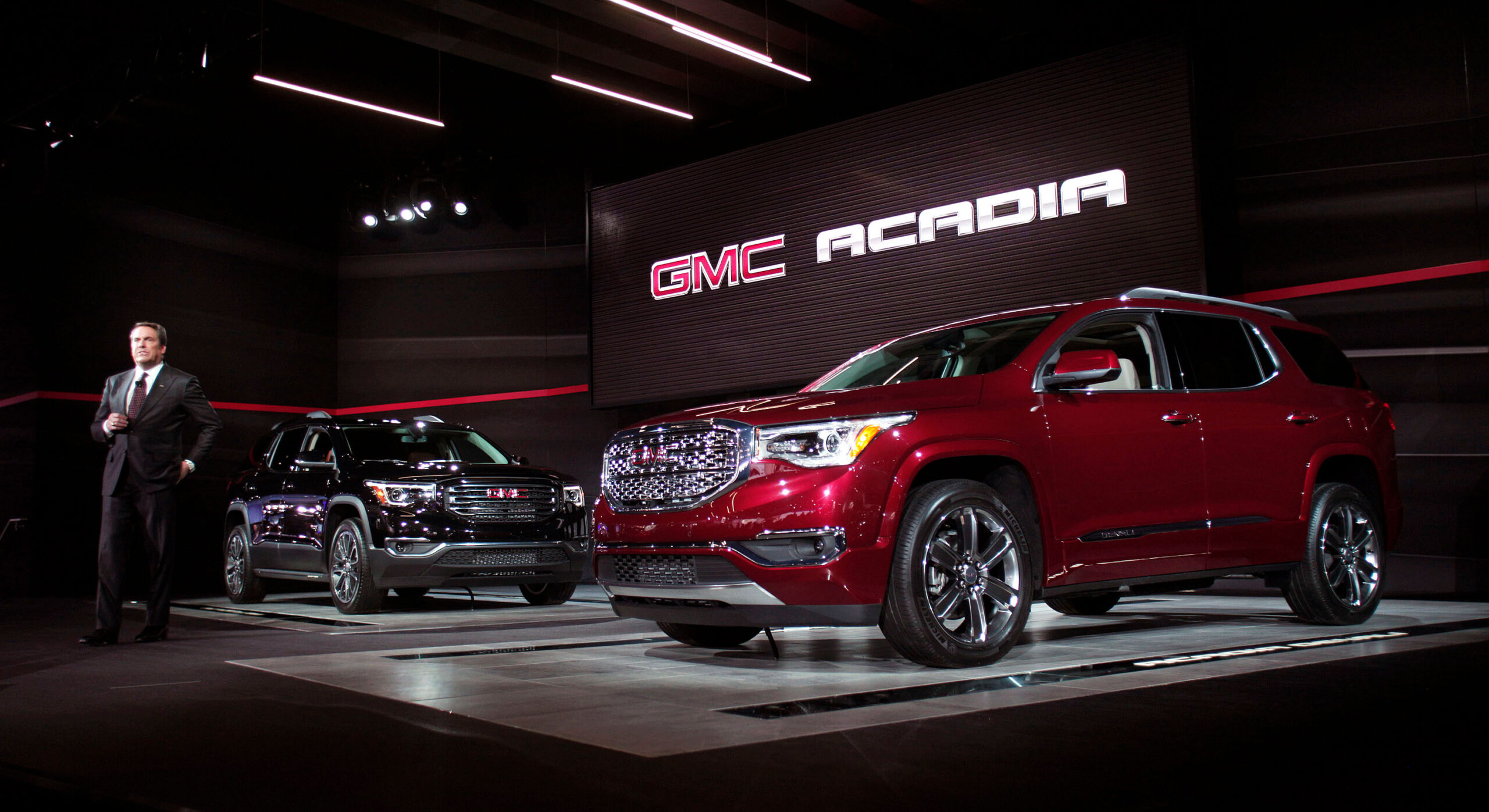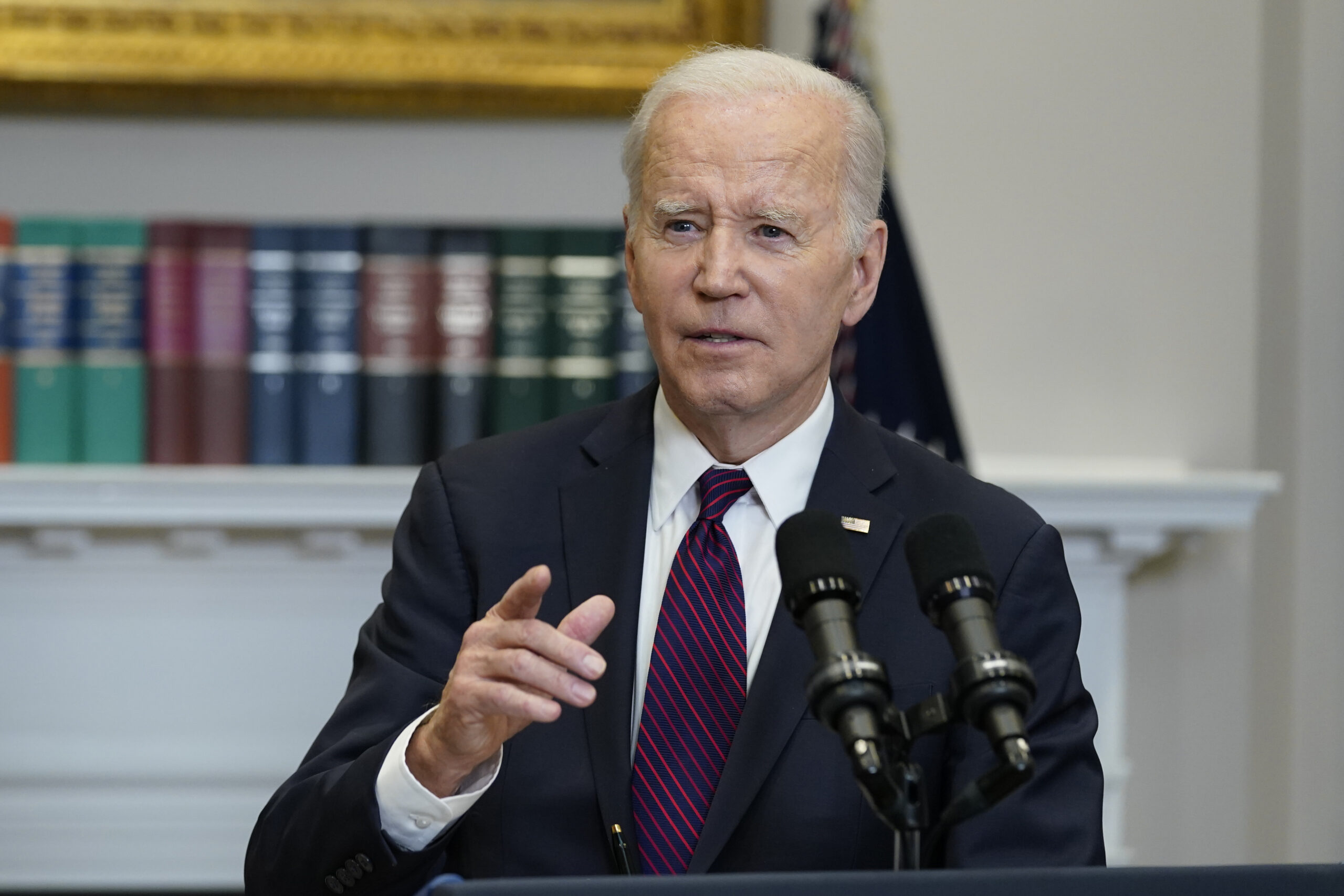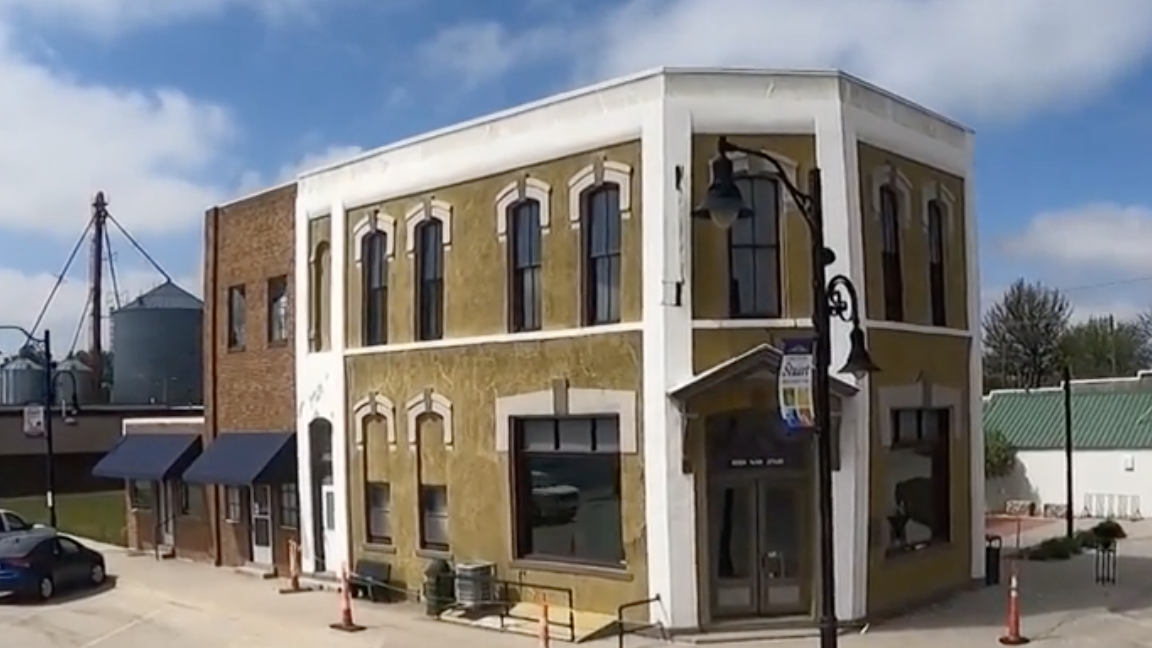UNITED STATES
US wants a recall of 67 million airbag inflators
May 13, 2023, 2:00 PM | Updated: May 15, 2023, 10:09 am

2017 GMC Acadia crossover SUVs are revealed at the 2016 North American International Auto Show in January 2016 in Detroit, Michigan. (Photo by Bill Pugliano/Getty Images)
(Photo by Bill Pugliano/Getty Images)
(CNN) — The National Highway Traffic Safety Administration is calling for an immediate recall of 67 million airbag inflators due to a dangerous defect, the agency said in a letter to ARC Automotive, a major manufacturer of the component. But the automotive supplier that made the component is disputing the need for it to conduct any sort of broad recall at all.
NHTSA cited at least nine incidents of airbags manufactured by Knoxville-based ARC Automotive rupturing, leading to significant injuries or even death beginning in 2009. Seven of the nine incidents, including one death, occurred in the United States. The 67 million airbag inflators that NHTSA wants recalled were all produced in the 18-year period prior to January 2018, when ARC installed equipment to help inspect inflators, according to the company.
“While incidents are rare, the incidents that have occurred have been severe, prompting the agency to issue a recall request,” Veronica Morales, NHTSA spokesperson, said in a statement. “NHTSA is taking this action under its authorities to investigate potential defects and oversee recalls as required by the Vehicle Safety Act.”
ARC disagrees on the need for a recall.
“We disagree with NHTSA’s new sweeping request when extensive field testing has found no inherent defect,” an ARC spokesperson said in a statement Saturday.
Millions of vehicles with airbags from Takata, the now-bankrupt Japanese manufacturer, are already under recall. NHTSA said that prolonged exposure to high heat and humidity caused those air bags to explode when deployed as well.
In comparison to ARC, the Takata airbags caused at least 18 deaths and left more than 400 drivers with injuries that included blinding and maiming. It’s also the largest auto recall in history.
The airbag inflators are used by at least 12 vehicle manufacturers, but NHTSA did not specify which ones.
In 2021, a driver in a 2015 Chevrolet Traverse died after the airbag inflator ruptured in Michigan. And outside of the United States, a driver in Canada was also killed by a ruptured airbag inflator in a 2009 Hyundai Elantra, according to NHTSA’s letter.
“Airbag inflators that project metal fragments into vehicle occupants, rather than properly inflating the attached airbag, create an unreasonable risk of death and injury,” the agency said in the letter.
GM said it would recall nearly 1 million cars in the US because the airbag inflator “may explode during deployment, due to a manufacturing defect.”
Included in that recall are the Buick Enclave, Chevrolet Traverse, and GMC Acadia vehicles from the 2014 through 2017 model years with modules produced by ARC Automotive. Dealers will replace the airbag module.
In a letter dated Thursday in response to NHTSA, ARC vice president for product integrity Steve Gold said the company “strongly disagrees” with the agency’s tentative conclusion that a recall for 67 million airbags is necessary.
The letter criticized NHTSA, saying that the agency’s request for a recall was “not based upon any objective technical or engineering conclusion regarding the existence of a defect” and that the “failures were anything other than occasional or isolated.”
To support the company’s claims, Gold cited nearly eight years of cooperation with NHTSA on an investigation into ruptured airbag inflators, including tests on 918 inflators pulled out of cars from salvage yards and sent to the company’s labs for testing.
“None of the 918 inflators ruptured in the tests,” Gold wrote in response to NHTSA’s request for a recall. “Accordingly, the test program demonstrated with 99% reliability and 99% confidence that the inflators in the subject population would deploy without rupturing.”
At least one of the ruptures cited by NHTSA was simply the result of an “isolated manufacturing anomaly,” Gold wrote, and thus a broader recall was unnecessary. And the Canadian incident involving the Hyundai Elantra, Gold added, involved a component that was not used in the US market.
Furthermore, “NHTSA’s authority to require certain manufacturers to conduct safety recalls does not extend to manufacturers of original equipment, such as ARC,” Gold wrote in the letter.
But Gold went on to write that the company could “understand” that “GM’s action is being taken out of an abundance of caution to address potential concerns about the inflators,” given that three of the incidents involved the Chevy Traverse, specifically.
Despite ARC’s protests, NHTSA still wrote that it believes the number of incidents rises to a level where a broad recall is necessary. To support its arguments, it cited seven incidents. One incident was fatal, another resulted in “severe” injuries, and several others result in injuries to the face.
– CNN’s Chris Isidore contributed.












